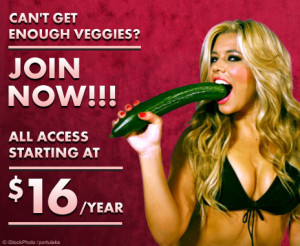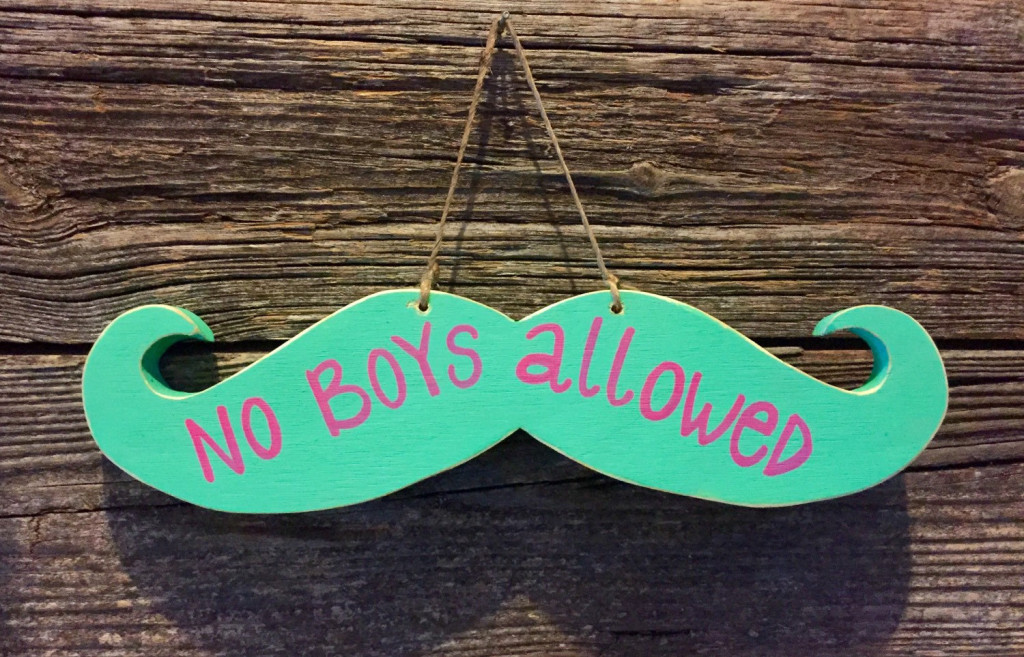
Can men be feminists? Certainly, this question is a contentious one, and there is little consensus on the matter. As a scholar of gender studies and an activist of fifteen years, it is my position that, no, cis-men* cannot be feminists. And there’s a good reason or two. However, these reasons are complex and there are many points to consider, so bear with me.
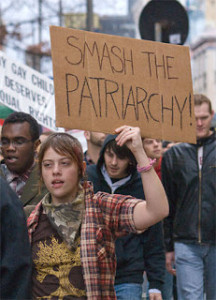
While I acknowledge that many disagree with this position, it is hardly a radical one. Quite a few feminists insist that men can’t be feminists (and the National Organization for Men against Sexism agrees). To be feminist is to be a self-identified woman fighting for female equality; to be a feminist requires a direct experience of gender oppression. Why? Because it is this unique experience as a member of a targeted group that will inform one’s activism.
Male Territorial Claims
Men who become disgruntled with this definition and demand inclusion only underscore the ubiquitousness of male privilege. When men reassert their entitlement, they are demonstrating their need to be in control and they are pulling on their patriarchal capital.
But wait! This doesn’t mean that men should hit the road, all men are scum, etc. Men, of course, have a role to play, too. Although cis-men can never fully remove themselves from the privileges of their gender, men can and should absolutely be allies! We should be wary of any man who insists on being included and insults those feminists who deny him inclusion. Individuals who engage this kind of behavior are demonstrating an inability to recognize their male entitlement. These are the very types of people who should never be considered a feminist in the first place, regardless of your position on the debate.
I think it’s a waste of energy to concern ourselves with those men who are irritable at the thought of being excluded. Truth be told, cis-men have full entitlement to 99% of the world’s social spaces. They also enjoy the infinite benefits of being male (like better jobs, better pay, more prestige, perceived credibility and authority, etc.). I know in my heart of hearts that men will do just fine without access to feminist spaces.
Insisting that Men Can’t be Feminist is Not Sexist
 When men consider it “sexist” to be excluded, it illustrates how little they understand the meaning of sexism. Women–who are an oppressed group living under a patriarchy that privileges men–cannot, by the very nature of their social status, wield sexism against men. Calling a woman sexist, a man-hater, or a misandrist is a counter-tactic that is intended to redirect attention from men–a privileged group that typically goes completely unexamined–back to women where it normally lies. In other words, it is a conscious attempt to divert focus from the oppressor to the oppressed. It is a tactic intended to silence and maintain male entitlement and privilege. Men cannot be oppressed by women under a patriarchy that is structurally designed to benefit men.
When men consider it “sexist” to be excluded, it illustrates how little they understand the meaning of sexism. Women–who are an oppressed group living under a patriarchy that privileges men–cannot, by the very nature of their social status, wield sexism against men. Calling a woman sexist, a man-hater, or a misandrist is a counter-tactic that is intended to redirect attention from men–a privileged group that typically goes completely unexamined–back to women where it normally lies. In other words, it is a conscious attempt to divert focus from the oppressor to the oppressed. It is a tactic intended to silence and maintain male entitlement and privilege. Men cannot be oppressed by women under a patriarchy that is structurally designed to benefit men.
In a similar tactic meant to undermine women, some men will insist that these “sexist” or “misandrist” women who exclude men aren’t really feminist themselves because they are discriminating based on sex/gender. The problematic nature of this reaction is put into sharp relief when we consider other identity-based movements like the disabled people’s movement or the Native American self-determination movement. Is it really a right for non-disabled persons or white-identified persons to claim entitlement to inclusion in those movements? There is a reason why some social justice spaces are semi-exclusive. It has to do, firstly, with the tendency for privileged persons to dominate and create hurt (even if doing so is not intended). It also has to do with a shared experience with oppression. It is a history that people with privilege cannot fully experience or understand, even if they give it their best effort and best intentions (which is admirable!).
It’s About Gender, Not Biology
Another retort is that a women’s only feminist space relies on biological determinism to maintain boundaries. But this response falsely conflates biology with social construction. Feminism is based on gender, not sex. Gender implies socially constructed roles, expectations, and treatments. Gender is about experience. Chromosomal makeup will have only a limited and arbitrary impact on how the social environment will shape one’s gender. For example, many people are born with penises or with intersex traits, identify as female, and share the female experience. These people are female (if they identify as such).
Gender is fluid and adaptable. This is what is meant by the feminist emphasis on “experience”; gender distinction relates to socialization processes, social interactions, and cultural meanings. Gender is not about genitalia, but, rather, it is concerned with the ways in which the world treats people according to the gender they have been assigned or identify with. In fact, many social identities are ascribed, such as race or species. Identification with a particular gender, race, or species means differential treatment and differential perceptions of the world. Again, the fluidity of gender means that some people who are ascribed one gender can resist and identify how they feel is most appropriate (and some will choose to reject the gender binary altogether).
It is cis-masculinity in particular that acts as an ideological barrier, and that is what this essay is intended to examine. In an ideal world, gender would be abolished and no one would feel bound by its restrictive and often harmful effects. But we do not live in a gender-neutral, gender-absent world. Differences still exist, and they still matter.
Consider Jane Goodall who studied chimpanzees for 45 years. She is a human, but she knows chimps well. She probably knows more about chimps than any other human on Earth. But does she know what it’s like to be a chimp as well as a chimp would? No, of course not, because she is a human. She experiences the world differently. She has her own history, her own social conventions, her own culture, and her own knowledges that obscure the possibility of ever fully knowing the chimpanzee experience. She may be an important ally to chimpanzees, but her human privilege will bias how she advocates for them. Her human privilege also means she can advocate for them when she wants to, if she wants to. Clearly, chimpanzees are not a direct correlation to human women, as chimpanzees, for the most part, lack the ability to mobilize and advocate for themselves, but the point is that social identity and privilege can impose a barrier that is difficult to overcome.
I argue that genders, too, represent distinct cultures. Many men will have women in their lives and feel that they know women well. They might study feminism, attend rallies, and read extensively on gender-based social justice. But do they ever really know the female experience? For cis-men, this is unlikely. They can develop a good understanding of course, but, ultimately, their socialization and personal history with privilege prevents them from ever fully being immersed in womanhood. This leads us to the crux of the argument: without really knowing the female experience, it quickly gets dangerous when a privileged group of people begin to advocate on behalf of a vulnerable group. This isn’t about putting men down and turning men away. This argument only reflects a desire that men acknowledge and respect that women will be the best positioned to advocate for women. It’s a desire for space and autonomy.
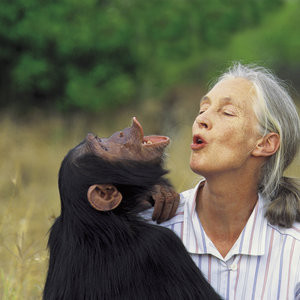
Caring About It Part-time vs. Living It Full-time
Even the most committed male ally to feminism can walk away at any time. He might spend a few days a week advocating for feminist causes, but he will always have the privilege to support or not support women at his whim. Women, on the other hand, will always be exposed to sexual harassment, sexual abuse, violence, rape, sexism, second class citizenship, etc. Men can critically examine patriarchy when it is convenient to them, but women have no choice but to endure the consequences of patriarchy at all times.
This is the crucial difference between a feminist and a male ally. A feminist lives that oppression, but an ally doesn’t have his neck out. He will always be protected and supported by patriarchy. He has male privilege as a safety net. So many times I’ve seen the most committed of “feminist” men turn their backs on women in need in order to protect their male buddies, to avoid drawing negative attention to themselves, or to escape some other consequence as is convenient to them. And really, men don’t have to walk in women’s shoes to help. That is, there need not be any urgency to experience the female experience. Men don’t need to worry so much about understanding women’s oppression so much as their privilege. Men can help by working on themselves rather than working on women.
Oppressed groups need a safe space where they can have leadership over their own struggles. There needs to be at least one space where male privilege does not usurp, control, and marginalize women. This is not a war on men, this is simply working to protect women’s spaces from male co-optation. That doesn’t mean there is no room for men in the feminist movement, it simply means that men will not be granted the full leadership and control they enjoy elsewhere. When we’ve got patriarchy under control, then we can talk about gender neutrality in collective action. But, until then, men should mind the boundaries.
Enacting Male Authority to Define and Police Oppression
Another reason we should be hesitant to include men as feminists is the tendency for men to take it upon themselves to define what feminism is. For instance, one male-identified Nonhuman Animal rights theorist in particular repeatedly argues that only vegans can be feminists. However, this person has not (and probably would not) insist that African Americans, Hispanic Americans, Native Americans, gays, lesbians, trans persons, disabled persons, etc. have a flawed sense of social justice or that they “aren’t real activists” because they are not vegan.
I suspect that men pick on women because women are an at-risk group, and this group still endures horrific levels of discrimination and violence that most people still consider completely normal. It’s easy to push women around. We would find it ridiculous if these same men made a similar argument to the Black Power movement: “African Americans cannot be Black nationalists if they are not vegan!” It is, if not laughable, then insulting.
 Men should not enjoy the privilege of defining what feminism is. There is something fundamentally wrong with men attempting to invoke their authority in this matter. Remember Brad Paisley’s “Accidental Racist” song? Paisley wrote about how he was rebuffed for wearing a confederate flag t-shirt by a man of color who was serving him at Starbucks. Paisley didn’t take too kindly to this. In his eyes, it was his hurt feelings that should take center stage; he was the one being discriminated against. What gives him the authority as a white-identified man to define racism? Likewise, what gives men the authority to define feminism?
Men should not enjoy the privilege of defining what feminism is. There is something fundamentally wrong with men attempting to invoke their authority in this matter. Remember Brad Paisley’s “Accidental Racist” song? Paisley wrote about how he was rebuffed for wearing a confederate flag t-shirt by a man of color who was serving him at Starbucks. Paisley didn’t take too kindly to this. In his eyes, it was his hurt feelings that should take center stage; he was the one being discriminated against. What gives him the authority as a white-identified man to define racism? Likewise, what gives men the authority to define feminism?
The Role of Allies
Many movements rely heavily on allies, like the anti-slavery movement of the 18th and 19th centuries and the Civil Rights movement of the 20th century. The difference between being an ally and being a full-fledged activist who gets to share in the identity of the movement is simple: knowing your place and being respectful.
Consider, for instance, the Freedom Buses of the Civil Rights movement. African Americans and whites rode those buses through the South in the face of life-threatening danger. The white activists in this example were allies. They were very important allies to be sure, but they could not claim for themselves the same space in social justice that African Americans had carved out for themselves. What if the Freedom Bus organizers had asked white activists to stand aside, and white activists responded by berating the African American riders with insults? What if the whites demanded to be included, and accused the riders of color of racism? It would be difficult to consider these people activists or allies, right?
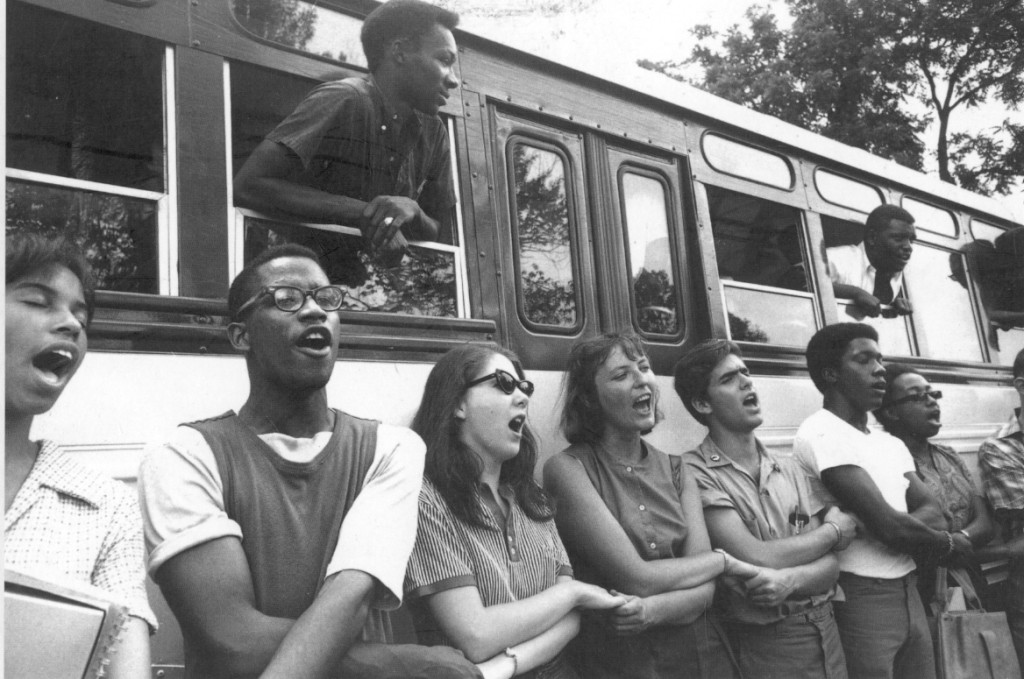
The Sexual Politics of Supporting Men
Sometimes men will draw on other women to support their entitlement the female space. Men may commission women to write essays or blog posts in support of their patriarchal position. Or, they may claim, “My girlfriend/wife/female friend/female administrator/etc. agrees and she’s a woman.” Women supporting these men will often call women “sexist” for asking men to keep their respectful distance.
These types of “reverse sexism” comments are sexist. Yes, even if coming from a woman. Any person that utilizes the framework of patriarchy to oppress women is engaging sexism, regardless of gender. Women are people, too, and they are also indoctrinated with the normalcy of sexism in our society. Women are taught to think less of themselves, celebrate masculinity, obey men, doubt their own experiences and voices, and basically cater to men as a strategy of survival. Women are expected to support men; that’s a primary duty of the female gender role. So, it should not be surprising in the least when men exploit this socialized obligation and encourage women to speak out in the defense of male authority.
What are Some Solutions?
In this essay, I have argued that men’s role in the social movement space is most respectfully that of an ally. The reasons for this position are many, but mostly relate to men’s limited understanding of women’s experiences and their tendency to dominate and abuse power given that we live in a patriarchy. The importance of this position is evidence in men’s aggressive reactions that rely on sexism to shame, insult, coerce, threaten, intimidate, or gas-light women into complying with male authority and male entitlement.
Again, men certainly can participate in their own way. Being an ally takes careful consideration and careful treading, however. Men who want to see an egalitarian future can help the cause by listening, learning, and working on their own attitudes and behavior (and that of the other men). Really, it’s as simple as that. Overcoming oppressive gender privilege is not an easy task, so it will necessitate a conscious effort to appreciate and accommodate the experiences of oppressed persons. It’s also important to be actively involved in making spaces safe for women. Women need support, not co-optation.
* This article takes “men” to mean cis-men and “women” to mean cis and trans women. This article also takes “men” to mean the cis-male perspective. This could also include women who identify with and support that position. It should also be acknowledged that not all men are cis.
 Dr. Wrenn is Lecturer of Sociology. She received her Ph.D. in Sociology with Colorado State University in 2016. She received her M.S. in Sociology in 2008 and her B.A. in Political Science in 2005, both from Virginia Tech. She was awarded Exemplary Diversity Scholar, 2016 by the University of Michigan’s National Center for Institutional Diversity. She served as council member with the American Sociological Association’s Animals & Society section (2013-2016) and was elected Chair in 2018. She serves as Book Review Editor to Society & Animals and is a member of the Research Advisory Council of The Vegan Society. She has contributed to the Human-Animal Studies Images and Cinema blogs for the Animals and Society Institute and has been published in several peer-reviewed academic journals including the Journal of Gender Studies, Environmental Values, Feminist Media Studies, Disability & Society, Food, Culture & Society, and Society & Animals. In July 2013, she founded the Vegan Feminist Network, an academic-activist project engaging intersectional social justice praxis. She is the author of A Rational Approach to Animal Rights: Extensions in Abolitionist Theory (Palgrave MacMillan 2016).
Dr. Wrenn is Lecturer of Sociology. She received her Ph.D. in Sociology with Colorado State University in 2016. She received her M.S. in Sociology in 2008 and her B.A. in Political Science in 2005, both from Virginia Tech. She was awarded Exemplary Diversity Scholar, 2016 by the University of Michigan’s National Center for Institutional Diversity. She served as council member with the American Sociological Association’s Animals & Society section (2013-2016) and was elected Chair in 2018. She serves as Book Review Editor to Society & Animals and is a member of the Research Advisory Council of The Vegan Society. She has contributed to the Human-Animal Studies Images and Cinema blogs for the Animals and Society Institute and has been published in several peer-reviewed academic journals including the Journal of Gender Studies, Environmental Values, Feminist Media Studies, Disability & Society, Food, Culture & Society, and Society & Animals. In July 2013, she founded the Vegan Feminist Network, an academic-activist project engaging intersectional social justice praxis. She is the author of A Rational Approach to Animal Rights: Extensions in Abolitionist Theory (Palgrave MacMillan 2016).
Receive research updates straight to your inbox by subscribing to my newsletter.
 There are many variations of this costume for men. But, for women?
There are many variations of this costume for men. But, for women? Notice how the male version, while horribly classist, still demonstrates male superiority over the feminine. The female version demonstrates female vulnerability/animal vulnerability. In both cases, the “sheep” is feminized and portrayed as a male sexual resource. See also American Apparel’s “zookeeper and animals” costumes.
Notice how the male version, while horribly classist, still demonstrates male superiority over the feminine. The female version demonstrates female vulnerability/animal vulnerability. In both cases, the “sheep” is feminized and portrayed as a male sexual resource. See also American Apparel’s “zookeeper and animals” costumes. These are brilliant examples of Carol Adams’s sexual politics of meat theory: Women are animalized, animals are feminized, and living persons become dead objects. They become fragmented pieces of flesh for those in power to pleasurably consume. These pieces of meat are made sexy. They want you to eat them.
These are brilliant examples of Carol Adams’s sexual politics of meat theory: Women are animalized, animals are feminized, and living persons become dead objects. They become fragmented pieces of flesh for those in power to pleasurably consume. These pieces of meat are made sexy. They want you to eat them. Sexualized food costumes for women reinforce the notion that women are resources to be consumed. They are non-persons, they are objects, they are here at your disposal. At least these costumes leave Nonhuman Animals out of it, but they’re still pretty darn problematic.
Sexualized food costumes for women reinforce the notion that women are resources to be consumed. They are non-persons, they are objects, they are here at your disposal. At least these costumes leave Nonhuman Animals out of it, but they’re still pretty darn problematic. Dr. Wrenn is Lecturer of Sociology. She received her Ph.D. in Sociology with Colorado State University in 2016. She received her M.S. in Sociology in 2008 and her B.A. in Political Science in 2005, both from Virginia Tech. She was awarded Exemplary Diversity Scholar, 2016 by the University of Michigan’s National Center for Institutional Diversity. She served as council member with the American Sociological Association’s Animals & Society section (2013-2016) and was elected Chair in 2018. She serves as Book Review Editor to Society & Animals and has contributed to the Human-Animal Studies Images and Cinema blogs for the Animals and Society Institute. She has been published in several peer-reviewed academic journals including the Journal of Gender Studies, Feminist Media Studies, Disability & Society, Food, Culture & Society, and Society & Animals. In July 2013, she founded the Vegan Feminist Network, an academic-activist project engaging intersectional social justice praxis. She is the author of A Rational Approach to Animal Rights: Extensions in Abolitionist Theory (Palgrave MacMillan 2016).
Dr. Wrenn is Lecturer of Sociology. She received her Ph.D. in Sociology with Colorado State University in 2016. She received her M.S. in Sociology in 2008 and her B.A. in Political Science in 2005, both from Virginia Tech. She was awarded Exemplary Diversity Scholar, 2016 by the University of Michigan’s National Center for Institutional Diversity. She served as council member with the American Sociological Association’s Animals & Society section (2013-2016) and was elected Chair in 2018. She serves as Book Review Editor to Society & Animals and has contributed to the Human-Animal Studies Images and Cinema blogs for the Animals and Society Institute. She has been published in several peer-reviewed academic journals including the Journal of Gender Studies, Feminist Media Studies, Disability & Society, Food, Culture & Society, and Society & Animals. In July 2013, she founded the Vegan Feminist Network, an academic-activist project engaging intersectional social justice praxis. She is the author of A Rational Approach to Animal Rights: Extensions in Abolitionist Theory (Palgrave MacMillan 2016).
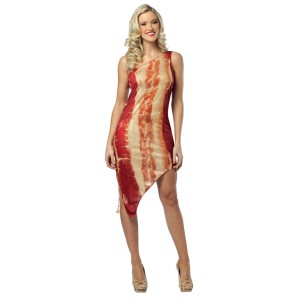






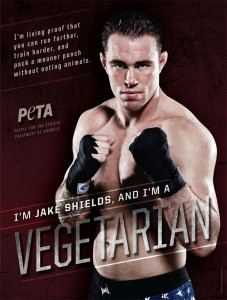
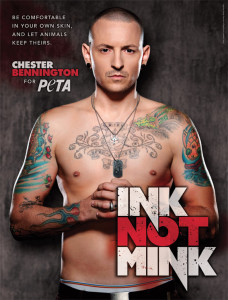
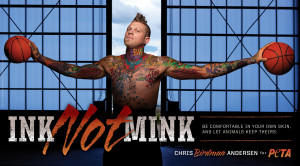
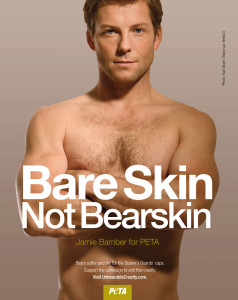
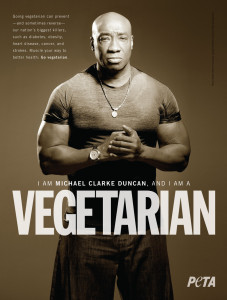
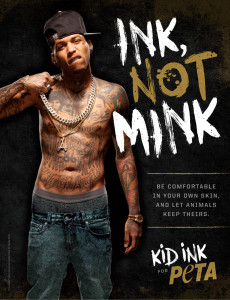

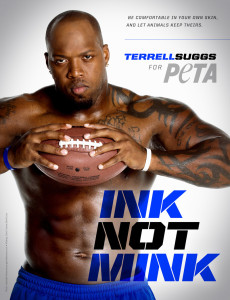

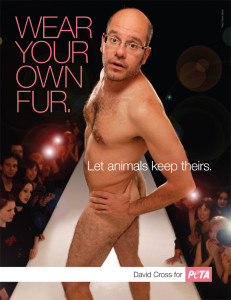
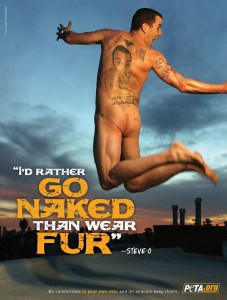
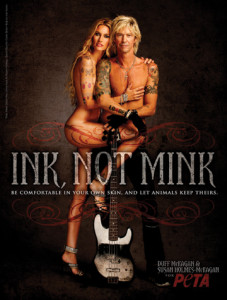
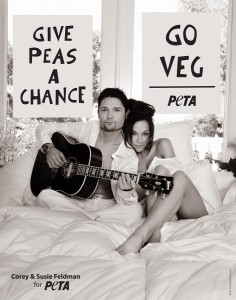


 When men consider it “sexist” to be excluded, it illustrates how little they understand the meaning of sexism. Women–who are an oppressed group living under a patriarchy that privileges men–cannot, by the very nature of their social status, wield sexism against men. Calling a woman sexist, a man-hater, or a misandrist is a counter-tactic that is intended to redirect attention from men–a privileged group that typically goes completely unexamined–back to women where it normally lies. In other words, it is a conscious attempt to divert focus from the oppressor to the oppressed. It is a tactic intended to silence and maintain male entitlement and privilege. Men cannot be oppressed by women under a patriarchy that is structurally designed to benefit men.
When men consider it “sexist” to be excluded, it illustrates how little they understand the meaning of sexism. Women–who are an oppressed group living under a patriarchy that privileges men–cannot, by the very nature of their social status, wield sexism against men. Calling a woman sexist, a man-hater, or a misandrist is a counter-tactic that is intended to redirect attention from men–a privileged group that typically goes completely unexamined–back to women where it normally lies. In other words, it is a conscious attempt to divert focus from the oppressor to the oppressed. It is a tactic intended to silence and maintain male entitlement and privilege. Men cannot be oppressed by women under a patriarchy that is structurally designed to benefit men.
 Men should not enjoy the privilege of defining what feminism is. There is something fundamentally wrong with men attempting to invoke their authority in this matter. Remember
Men should not enjoy the privilege of defining what feminism is. There is something fundamentally wrong with men attempting to invoke their authority in this matter. Remember 


